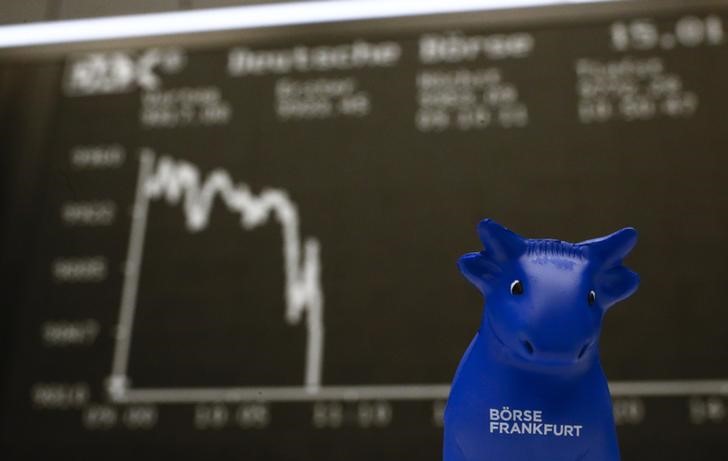Investing.com - European stock markets traded lower Monday, with investors digesting disappointing German PMI data and more quarterly corporate earnings, while nervously awaiting the outcomes of central bank meetings, including by the Federal Reserve and the European Central Bank.
At 03:35 ET (07:35 GMT), the DAX index in Germany traded 0.3% lower, the FTSE 100 in the U.K. fell 0.5% and the CAC 40 in France dropped 0.3%.
Philips slumps on Chinese worries
The quarterly earnings season is now in full pace, and a lot of attention will be focused on the U.S. tech sector this week, with the likes of Microsoft (NASDAQ:MSFT) and Alphabet (NASDAQ:GOOGL) set to report on Tuesday.
Ahead of that and back in Europe, Philips (AS:PHG) stock slumped over 6% after the Dutch health technology company expressed concern Monday over China's drive to become self-sufficient in health-related technologies, even as it slightly raised its full-year targets after posting a bigger-than-expected jump in second-quarter core earnings.
Ryanair (IR:RYA) stock fell 3.6% after Europe's largest airline by passenger numbers posted quarterly profit above pre-pandemic levels, but lowered its passenger growth forecast for 2023 because of Boeing (NYSE:BA) delivery delays.
On a more optimistic note, Adidas AG (ETR:ADSGN) stock rose 1.3% after the Financial Times reported that the German sportswear giant has received orders worth around $565 million for the first batch of online sales of its unsold inventory of Yeezy shoes.
Vodafone (LON:VOD) stock rose 3.7% after the U.K. telecoms group reported an acceleration in first-quarter top-line growth, driven by strong demand in Britain and improvements in Germany, Italy and Spain.
Fed, ECB set to hike again
The Federal Reserve is the first of the major central banks to meet this week on Wednesday, followed by the European Central Bank on Thursday. Both are widely expected to increase interest rates by another 25 basis points.
These decisions have been firmly signaled, and so the focus will be on what Fed Chair |Jerome Powell and ECB President Christine Lagarde say about the rate outlook.
As things currently stand, the markets expect this to be the last hike from the Fed and second-to-last from the ECB, as the aggressive synchronized global tightening campaign to combat soaring inflation nears its end.
The situation is different in Japan, with the country’s central bank expected to stand pat on Friday, but Japan's core inflation stayed above the 2% target in June for the 15th straight month suggesting the BoJ could upgrade this year's inflation forecast.
German PMI data disappoints
Investors will study July manufacturing and services activity for the eurozone during the session, with the dominant German manufacturing sector disappointing, falling further into contraction territory, while its composite index unexpectedly fell below the crucial 50 level that separates expansion from contraction.
Data released earlier Monday showed that manufacturing activity in Japan extended declines in July while growth in the service sector slowed.
Staying in Asia, China's next politburo meeting is expected for Friday, and this could result in additional stimulus as Beijing attempts to support the world’s second-largest economy as it struggles to recover from its COVID hit.
Oil prices hand back some of the recent gains
Oil prices fell Monday, consolidating after recent gains ahead of this week’s rate-setting meetings from U.S. and European central banks.
By 03:35 ET, the U.S. crude futures traded 0.6% lower at $76.59 a barrel, while the Brent contract dropped 0.6% to $80.41.
The benchmarks rose 1.5% and 2.2% respectively last week, their fourth consecutive positive week, as the prospect of tighter supplies–additional production cuts by Saudi Arabia and Russia are set to start in August–resulted in prices climbing to their highest levels in nearly three months.
Additionally, gold futures fell 0.1% to $1,965.30/oz, while EUR/USD traded 0.4% lower at 1.1080.
